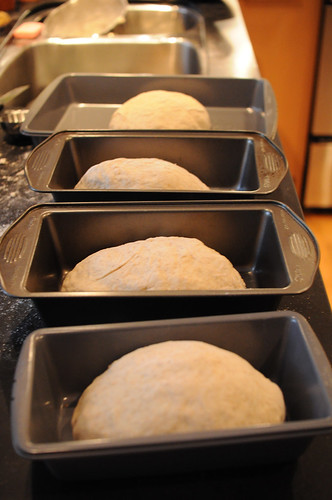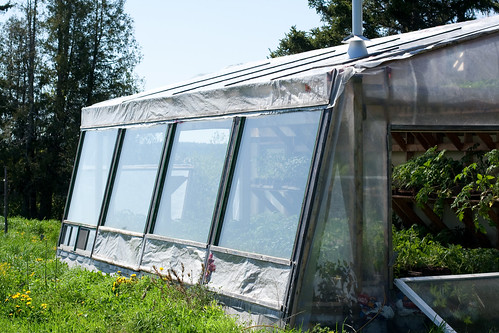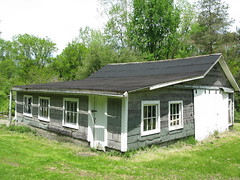Doing The Research
Three Easy Steps To Get You Started – Homesteading In Suburbia
Part Two of a Three Part Series
STEP TWO – Doing The Research
Now that you’ve discussed your homesteading ideas with the family and have a list of homesteading activities you’d like to pursue it’s time to see how much of it is possible.
Using the answers to the questions in STEP ONE find out what is allowed by your city or Homeowners Association (HOA), if you have an association. This becomes especially important if raising livestock or installing solar or wind energy is on your list of homesteading activities. Even asking about installing a clothes line can be important because some cities prohibit the use of clothes lines for aesthetic reasons. But there are ways around that, which will be discussed later.
Remember though, not all questions will need an answer by the city or HOA, but they will need to be answered.
To make the process easier, list all the questions that need an answer. Then decide if the question needs an answer by the city or HOA or some other resource. Then call each one. Don’t just rely on one entity for your final answer because HOA regulations may differ from what the city allows. And, in some cases the HOA rules may override the city.
Questions like “Are chickens allowed in my area? Or, “How far does a compost pile need to be from my property line?” are common.
Sometimes it’s easier to visit City Hall in person. That way you can talk with the proper department or multiple departments without having calls transferred and possibly disconnected. Also, if there is a fee for printed materials or a “no mail” policy for printed materials you will already be there to handle it. The goal is to get the information you need as quickly as possible so you can start your homesteading projects.
The categories below follow the question categories in STEP ONE and list some simple questions you may need answers to.
Editor’s Note: Homesteaders are traditionally quiet, independent people who don’t normally discuss what goes on on their homestead. But in suburbia, where you have neighbors around and who may be able to see into your yard, it becomes a bit more important to find out what’s allowed and what’s discouraged. If for no other reason than to keep the peace.
In The Garden…
Fortunately, there aren’t too many city regulations governing the home garden. But, there are two areas that stand out and should be checked on. One is composting and the other is building a greenhouse or potting shed.
The questions below will help you in your discussion with the city.
Does the city have any guidelines regarding composting? Such as, the type of container that can be used? Distance from neighboring properties? Or, number of compost piles or bins I can have?
Normally, a compost pile is made out of scrap wood and/or wire. Often times the compost pile is open on top or in the front to make turning the pile easier. But, in a suburban setting, cities may wish for the pile to be enclosed because of concerns about flies, insects or attracting animals. Many cities that have composting programs also sell the type of composting bin or container that has been approved by that particular city. It may be easier to buy the approved bin rather than build one that may not meet the cities requirements. And, in most cases the cost of the approved bin is minimal.
Greenhouses or potting sheds become a little more involved because they may fall under the jurisdiction of the City Building Department. You will also want to contact your Homeowner’s Association, if you have one, to find out what their guidelines are. Before heading to City Hall or calling your HOA have an idea of the kind of greenhouse or potting shed you want to build. Know the dimensions and height, along with the types of materials that will be used. If you have a picture or a rough drawing, even better.
Here are a few questions to get you started with both the city and your HOA.
What are the city’s (or the HOA’s) regulations governing greenhouses or potting shed? What are the maximum dimensions I can build without a permit? (Make sure you ask about height. Some HOA’s have rules about structures being seen from the street.) Can my greenhouse or potting shed have water (for watering plants) and still not require a permit? What is the required distance from neighboring properties?
Try to make the structure seem as simple as possible to avoid the need for costly building permits. Emphasize that the structure is NOT a permanent building with a foundation, utilities, etc.
One important aspect of the suburban homestead is to survey your property (not professionally) to determine where gardens can go. If you don’t want to tear up the lawn to make way for vegetable beds, look to see what other areas you have that could be used. If necessary, or to make it easier for you, plot the yard on graph paper and identify where the veggies, fruit trees, berries, etc. can be laid out. This will help you further determine what is possible and allow you to make adjustments to what you can grow.
Don’t forget to include existing flower beds, parkways or paths along driveways as potential growing areas. At this point, you’ll also want to decide how much of the current plantings you want to remove in order to grow a wider variety of crops.
In The Barn…
Raising livestock is a big responsibility, but the rewards are even greater. I never dissuade families from trying livestock, but I do highly encourage them to know all the aspects before they buy their first animal, even if it’s just a chicken. In my mind the most important part of raising livestock, even more so than the type or breed, is deciding what you are going to do with them and how you will do it, especially if you’re raising them for meat. This is not an area where you want to get caught with a “ready-for-butcher” animal, only to find out you have no one to process it.
First of all, you’ll need to find out what livestock, if any, are allowed in your area. This would be a question for the city and for your HOA, if you have one. Be sure to ask what you can have (chickens, rabbits, goats, sheep, etc) and how many you can have. You should also ask for any important information concerning the building of coops, hutches or small barns.
Chickens are a great first animal project. And, more and more, city governments all over America are passing laws to allow small backyard flocks. However, if your area currently does not allow chickens check back because laws are always changing, or better yet write a letter to the city encouraging them to pass such a law.
If livestock is allowed be sure to answer these questions before you buy any animals.
Where are feed and equipment suppliers in your area? Do they carry a consistent supply of feed for the animals you want to raise?
Are there any local groups or programs available where you and your family can get more information or training about raising livestock or perhaps find someone to mentor you? Youth programs like 4-H, Grange and FFA (Future Farmers of America) can be a wealth of information as well as support and friendship for those interested in starting with livestock.
Check to see if any veterinary clinics treat the livestock you wish to have (just in case).
If you and your family have decided to raise animals for food and you don’t want to process them yourselves, you’ll have to find someone. A local county fair is a good place to start because they probably keep a list of local processors that are used for the county fair’s livestock auction. Small, independent butcher shops and feed stores can also be good resources.
If raising sheep is on your homestead list and you don’t want to learn to or invest in the proper equipment to shear yourself you’ll need to find a shearer. This may take a bit of investigating and you may have to go some distance outside your immediate area, but a good place to start is to check with local community colleges or universities that have animal science programs. Sometimes students offer their services for a fee. You can also check with the county Farm Bureau office, Cooperative Extension office or Farm Advisors office. Again, your county fair office and feed stores along with the youth programs mentioned above may be able to help you locate someone.
Remember: Raising livestock is a year-round responsibility that should not be taken lightly. The best way to enjoy the experience is to understand what you’re getting into.
Around The House…
I must admit – cleaning house is one of my least favorite jobs on my suburban homestead, albeit a necessary one. I do, however, really enjoy hanging laundry on the clothesline. It’s a kind of solitary, therapeutic chore that forces me to slow down and takes me away from my normal multi-tasking self.
Although there aren’t too many rules and regulations governing this area of a homestead, there are a few, and still more questions that need to be answered before you begin.
First off, if you decide that you want to conserve energy and money by using a clothesline check with the city and your HOA, if you have one, to make sure it is allowed. Believe it or not, many cities do not allow clotheslines for aesthetic reasons. If for some reason you’re not allowed a clothesline you can still reap the benefits. Using folding clothes rack or installing your clothesline in the garage or basement will produce the same results and savings.
If making your own cleaning, laundry and beauty supplies is on your list of homestead activities, you’ll want to find local and/or internet suppliers for the ingredients. Be sure to check dollar and discount stores as well. They often times carry items that traditional stores don’t.
If you’ve made the decision to do your own lawn care and pest control make sure you have access to the supplies you’ll need. If they’re not available in your area, find out where you can get them.
Homestead activities like sewing, quilting, woodworking and the like may take some lessons if you don’t have someone who can teach you. Check with local fabric stores for sewing classes and quilting supply shops for quilting lessons. Many areas also have quilting and woodworking groups that either teach classes or can direct you to someone that does.
My favorite way to learn a new skill is to post a notice with a local church, senior center or ladies group asking for private lessons. It’s wonderful to help someone who may be on a limited income earn extra money, but you also make new friends that understand why you’re pursuing this way of life. The benefits in friendship and companionship are endless.
In The Kitchen…
 The center of any homestead is undoubtedly the kitchen. This is where you feed your family, preserve the bounty of your harvest, work on projects and plan for the future. So much of life takes place in and around the kitchen table.
The center of any homestead is undoubtedly the kitchen. This is where you feed your family, preserve the bounty of your harvest, work on projects and plan for the future. So much of life takes place in and around the kitchen table.
For the new suburban homesteader though, this can be a daunting place. If canning, baking, preserving, even cooking a family meal from scratch is not your forte, not to worry. Food is such a central part of life that resources are plentiful and usually local. Check local cooking shops or health food store for classes. Even William Sonoma stores offer weekly classes. Find out if your area has a cooking school that will allow you to take specific classes rather than the entire program. Ask a friend whose cooking you admire, if they’d teach you their favorite recipes. Or, check with vendors at local Farmer’s Markets. Again church ladies or women’s groups can be invaluable as mentors.
Finding classes or a mentor for more specialized cooking like cheese making or canning may take a little more time, but don’t be put off. Here again, a local county fair may be useful especially if they have a dairy foods or food preservation competition because the entrants will be local. The fair may be able to provide you their contact information, and you in turn can call to see if they would be interested in giving lessons. And, don’t forget about your local Cooperative Extension or Farm Advisors office. They are a wealth of information on a wide variety of homemaking topics.
Most standard cooking and preserving equipment can be found locally. Even small independent hardware stores and farm supply stores carry some of the more basic equipment. But, for more specialized pieces like grain mills or dehydrators, specialty catalogs like Lehman’s (available at Lehmans.com) or Vermont Country Store (at vermontcountrystore.com) are good sources. Internet sites like Ebay and Craigs List are also good resources for finding used equipment.
I was fortunate enough to have a dad that loved to cook and who was willing to teach me. I learned most of the basics of cooking at home. In high school, way back when Home Economics was still taught, I honed my skills not only in cooking, but also in home budgeting and sewing. Even though I didn’t use most of what I learned until I was married, I think it is a shame that Home Ec and other life skills classes have all but disappeared from the American education system.
Off The Grid…
Perhaps more than any other part of a suburban homestead, alternative energy will be the most time consuming regarding research. This is definitely an area where you want to fully understand what the city and HOA regulations are before you begin. If you plan on hiring an installer they may handle all the paperwork and permits required, but it’s still a good idea that you know the process as well.
This kind of diligent research should also be applied if you are thinking about converting your central heat to any kind of wood or pellet burning system. If heating with wood is the direction you’re heading you’ll want to make sure you have a good, readily available source for wood. It will also be important to determine if you have adequate storage space for the number of cords you’ll need through the colder months. This, of course, will vary depending on where you live and the severity and length of your cold season.
With any kind of alternate energy system, whether it be solar, wind or wood/pellet heat, it’s always a good idea to have the model and specs of what you’re considering installing available when talking with the city or HOA.
Check local listing for installers in your area or the internet if you plant to install the system yourself.
Rainwater collection is usually not as regulated as other areas. In fact, most collection systems are installed with very little fanfare because they are below fence lines and not seen by neighbors or from the street. But, it’s still a good idea to casually inquire about any guidelines.
You’ll also want to source the components of the system you want to install. Craigs List and Ebay are good starts for finding used tanks. But, make sure they were never used for chemicals that may harm your plants or your family. Local sources would include farm supply stores, farm cooperatives or liquid storage supply companies. Whether they stock tanks or not they may be able to point you in the right direction.
Frugality…
Frugality doesn’t seem like an area that would require much research, but with all the add-ons a normal family brings into their lives it does take some effort (and research) to undo it all. If this is an area you and your family have decided to pursue as a way to simplify your lives and to help reduce your “monthly nut” there are a few things you’ll need to check into.
Monthly services like cable, bottled water, and other home delivery services may have been purchased under a contract. Check with each vendor to find out if there is a contract. If there is no contract, services can be cancelled or modified immediately. If there are contracts, find out when they expire, if there are any penalties for canceling early or making modifications and what the “buy-out” cost is, if any. With this information you can now decide how to reduce or modify these services.
Waste management (trash or garbage collection) is another area where you’ll want to call to find out what your options are. Many trash companies have a variety of programs that can help you reduce the amount you spend on trash collection each month. But remember, these programs often times reduce the size of your trash cans because it’s assumed you’ll be recycling more or composting your green waste, so be prepared to make those adjustments in your household.
Locating free entertainment will also take a little bit of searching. Community calendars, parks departments, museums and your City Hall community affairs department are all good places to start. Google searches for “what to do in the area” may also turn up some little known and interesting activities.
If your frugality plan also includes shopping at thrift or second-hand stores or selling unused items at consignment stores you’ll first have to find out what’s available. Many churches operate thrift stores in order to raise money for their programs. Check local church listings in the phonebook or local newspaper then call to ask if they have a thrift store. Consignment stores may also be listed in the phonebook. Don’t be afraid to check outside your community as well. Some of the best thrift stores I visit are miles from the town I live in.
Deciding to start a homestead, no matter where you live is a process, one that does not have to be done all at once. Now that you have answers to some of the more basic questions about homesteading you and your family can decide what may or may not be feasible for you. At this point your homesteading plan can be adjusted and altered to accommodate what you’ve learned.
Editor’s Note: Be sure to check back as we “Lay Out The Plan” in PART THREE of Suburban Homesteading – One, Two, Three.
This is by no means an exhaustive list of areas that should be researched as you begin your suburban homestead venture. You may not want to incorporate every area right away. But, it will help you understand what is allowed or available in your area so you can alter or adjust your homesteading plan. It will also give you an idea of the type of information that should be obtained before beginning a new homesteading project.





Recent comments
Aenean nonummy hendrerit mauris. Phasellus porta.